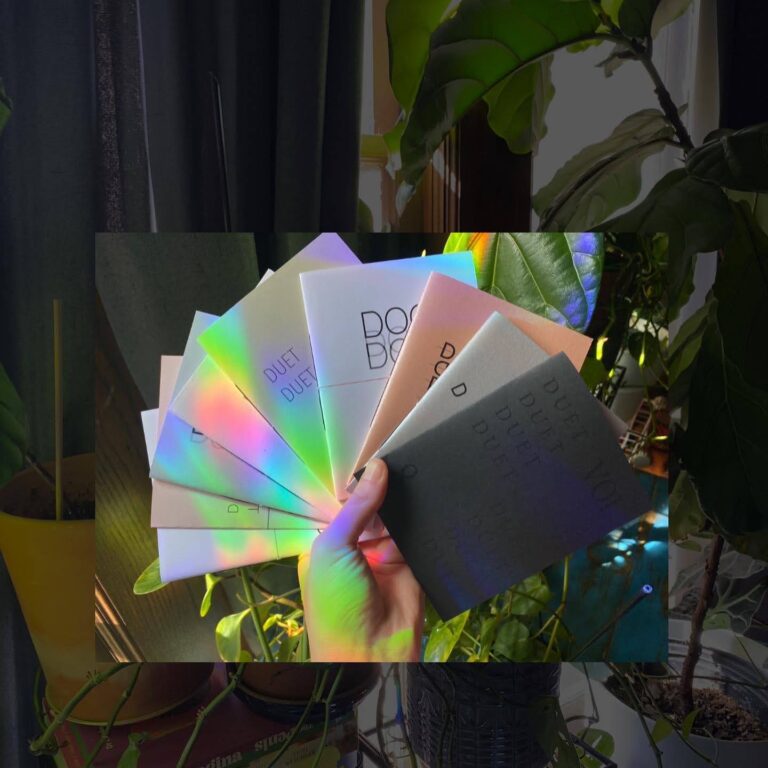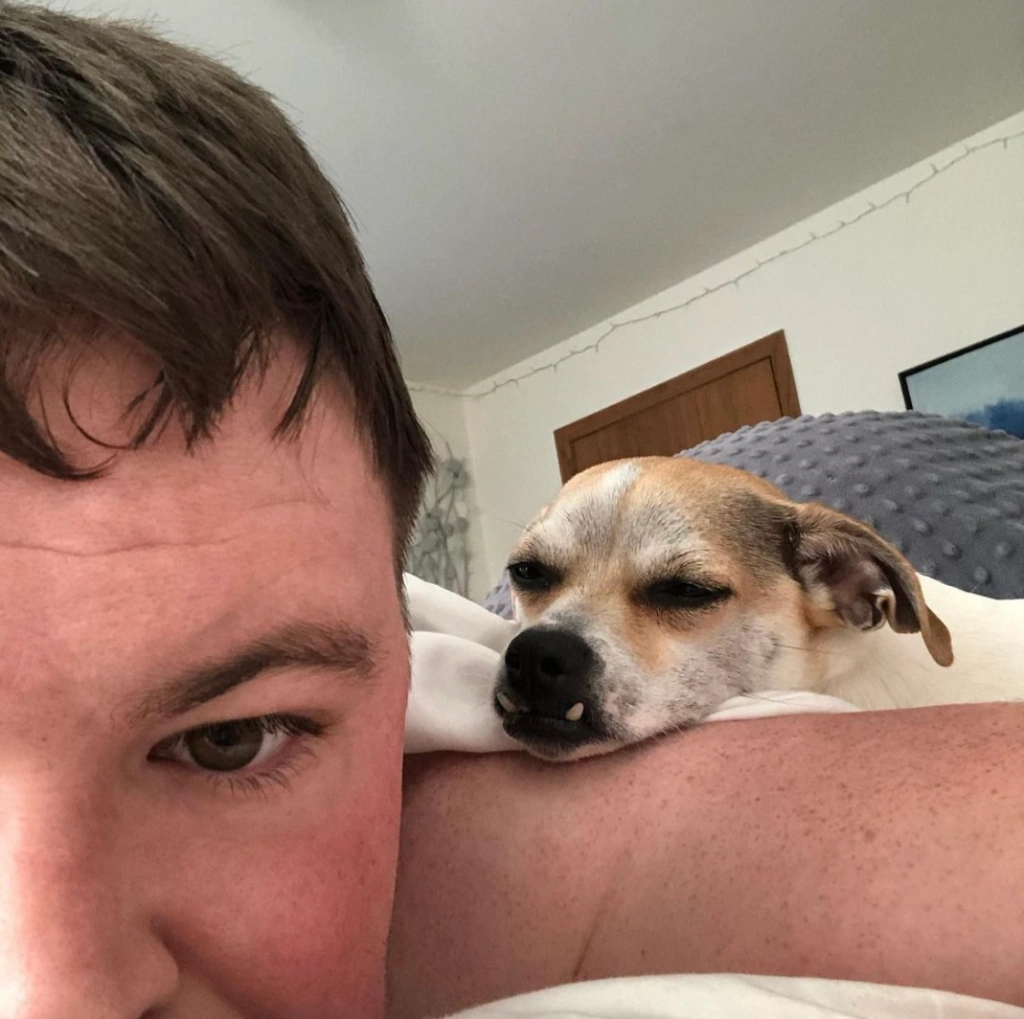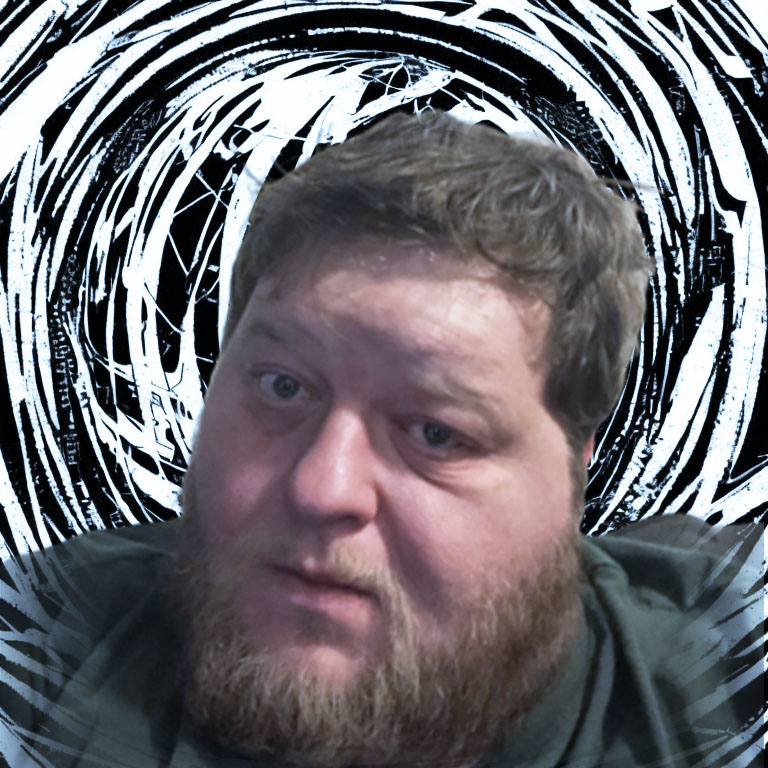Pitymilk FINALLY had the chance to volley a few Q’s with the powerhouse of poetry and rage, Dylan Krieger. We were so proud to include Dylan’s work in the 8th edition of DUETDUET alongside poems by Claire Rychlewski. If you know, you know… and if you don’t — get it together.
PITYMILK: At Pitymilk we like to know where ppl are ‘coming from’… tell us the basics please (where were you planted? Where did you fruit? Where do you want to rot?) — but maybe a little also about where you are coming from metaphorically… what comes through the wire and up from the floor, so to speak, when you do the things you do? Contextualize yourself.
DYLAN KRIEGER: I was born and bred a “basement child,” as we used to call the most sheltered of church kids back home in South Bend, Indiana. I was homeschooled by fundamentalist Christian parents, stayed in town to go to the University of Notre Dame (even more God), and finally moved away at 22 to get my MFA at LSU. In a stylistic sense, I am certainly a product of both of those creative writing programs as well as my homeschooling. At Notre Dame, I was introduced to the Gurlesque, a uniquely grotesque, tongue-in-cheek, feminist poetics, which drew me to LSU, where one of the original Gurlesque anthology’s editors (Lara Glenum) taught in the graduate program. I was always drawn to poems that seemed “imperfect” or even “low brow”: anything obscene, anything “gross,” anything messy or heretical or “tasteless.” But my poems also tend to sound incantatory, spell-like or prayer-like, which probably comes from my over-exposure to the Bible as a child.
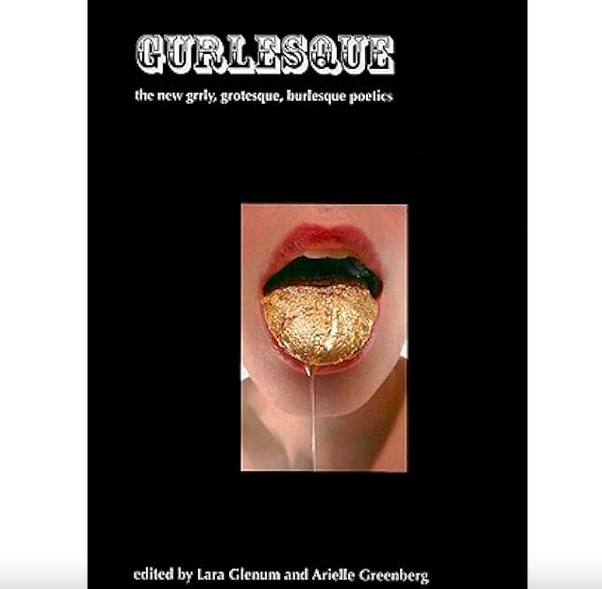
PM: You are a prolific writer with a book out almost every year for a while now — what’s your secret? How do you keep up such an impressive output? Do you ever hit a lull or even a wall? How do you move through them when and if you do?
DK: Actually, my entire writing life has felt like one solid wall since pandemic. Because I have a chronic pain condition and a classic case of “gifted child burnout,” I took pandemic as a cue to slow down in almost every respect: partying, boyfriend-hopping, and even writing and submitting. Although I still try to write at least a poem a week, I have nowhere near the kind of output I had in my late 20s, when I was writing a poem every weekday. Back then, I had a system of writing out all of a book’s poem titles before even starting, so I would never get stuck on the question of what to write next. Now, I find myself scraping the bottom of the Scrabble tile bag for anything that inspires me (which usually still ends up being the grotesque in some form). There’s a core creative fear that emerges from being prolific: Of course, I somewhat fear slowing down, or that it means my best writing days are behind me, but the bigger fear is becoming repetitive, stale, a sort of outdated caricature of myself.
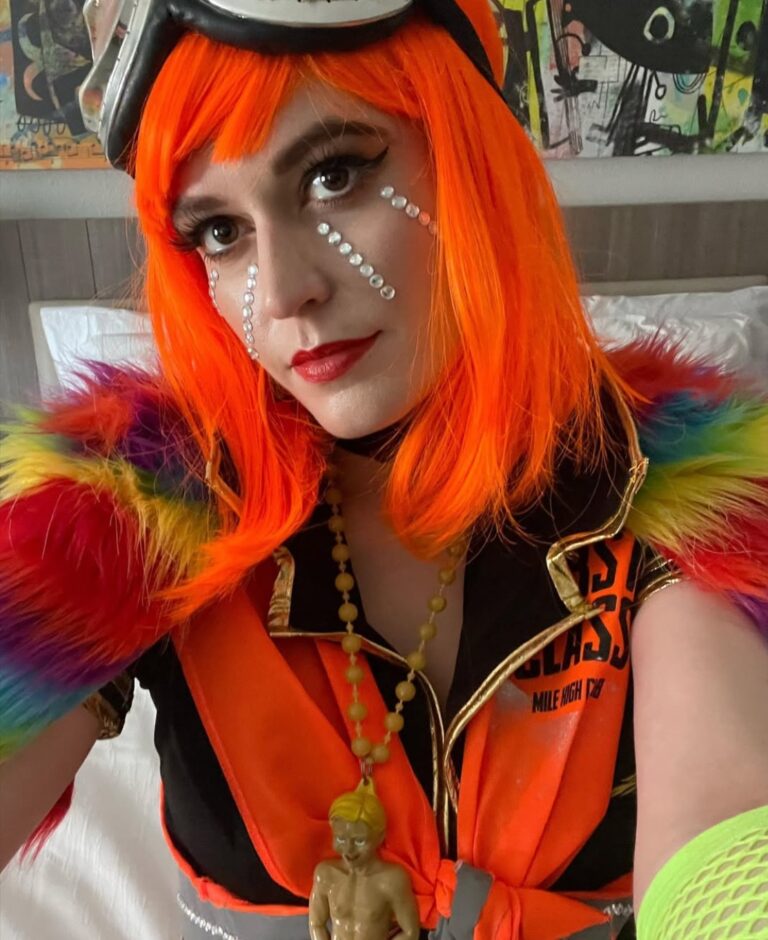
PM: What do you have against God?
DK: I actually have nothing against imaginary friends, and as a former philosophy major, I know not all concepts of god are oppressive or particularly harmful. The god I grew up with, on the other hand, was oppressive and particularly harmful. I’m a firm believer that church is child abuse. If you teach kids they deserve hell and that punishment is the best deterrent for disobedience, they’re much more likely to grow up hating themselves or others. Don’t get me wrong: My upbringing is an infinite wellspring of writing inspiration, but I still wouldn’t wish it on my worst enemy.
PM: Your work was paired in DUETDUET 8 with Chicago based writer Claire Rychlewski, how do you feel about the matchup? Did you feel any magnetism there? A kinship? Would you hypothetically go for another date?
DK: Claire’s writing is so sexy and playful, I felt lucky to share a little black book. It feels like that phrase works on many levels here: The volume is obviously literally little and black, but there’s also something deeply sexually uninhibited in both our work, along with a sense of awe about even the most craven human machinations. The simplicity of Claire’s poem ending “There are no bounds / to our capacity for deception” encapsulates this sort of unflinching amazement about the breadth and scope of human malleability that we normally only notice in order to judge or condemn.
PM: Who are your artistic heroes? What got you into writing and creating? Who keeps challenging you? Who are your rival contemporaries? What was your favorite record in the 9th grade?
DK: Strangely, the first names that come to mind technically work in different mediums than literature. Before ever learning about the Gurlesque, I was deeply inspired by body horror (Cronenberg, obviously) and the photography of Joel-Peter Witkin, which inspired the visual effects of the movie Jacob’s Ladder (1990). Now that social media reigns, I’ve seen the comment sections under Witkin’s photographs, and I admire his enduring ability to shock and disturb viewers. My favorite album in 9th grade was AFI’s Sing the Sorrow, which was very “Hot Topic goth” and taught me $10 words like “preternatural” and “imbrue.” As a homeschooled Christian kid, all of this art felt extremely dark and transgressive, almost sinful to enjoy, but in the end, sin always wins.
PM: Name three dead celebrity crushes and speculate on which you think gives the best head?
DK: Rod Serling, Gene Wilder, and Jimmy Stewart. I’d have to choose Serling, whose head wouldn’t only be of sight and sound but of MIND.
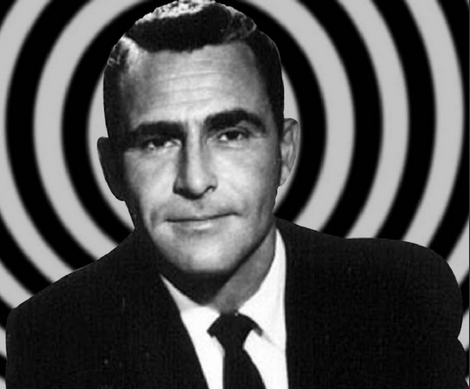
PM: In addition to your prolific publishing persona, you are an amazing performer of your work. What is your relationship to the performance? Not too long ago you went on a little tour with our co-editor Edie Roberts, tell us some anecdotal highlights of that little midwest trip?
DK: As an introvert who has long struggled with social and performance anxiety, I hated public readings at first, especially the expectation to perform a poem in a dramatic fashion. I opted for a “deadpan” reading style for a long time, rationalizing that the poem should speak for itself. But then I went to a lot more readings as an MFA student, and I finally realized what is usually obvious to people: Readings can be very boring, and the boredom often stems from the delivery of the work rather than its content or substance. Now I sort of get a high from surprising people and shaking them out of that default boredom. Edie and I had 4-5 readings in Ohio and Michigan over a span of just 4 days, which was quite a whirlwind of excellent hosts and readers who occasionally swallowed their own poems (that was memorable). I also remember us listening to Ozzmosis out of 90s nostalgia on the road. (They really need to use that Perry Mason song as theme music if they ever reboot the show.)
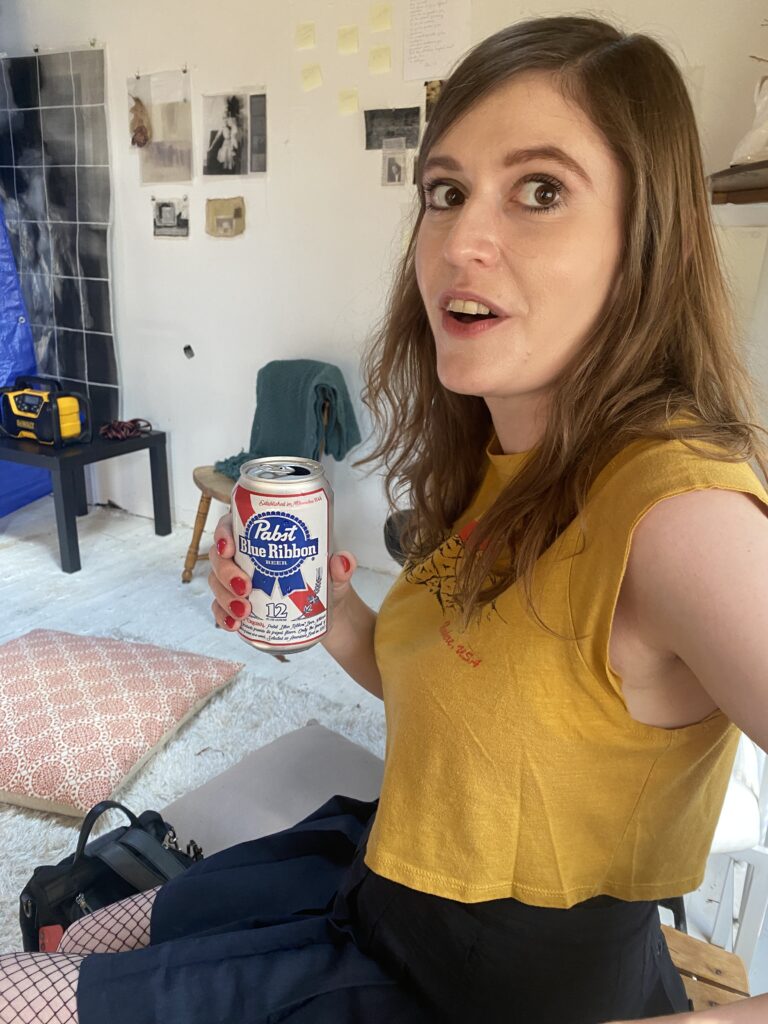
PM: What’s coming up that we should know about? What are you excited about? What keeps you going? Where can we follow along with your highlights and exploits? Will you ever be sated?
DK: In 2026, the publisher of the original Gurlesque anthology, Saturnalia Books, will be releasing my eighth full-length collection, No One Is Daddy, which still feels surreal every time I say it. No One Is Daddy was my pandemic project, so it’s my way of proving I can still write poems I’m proud of even after slowing my creative pace. What always keeps me going as a writer is my undying fascination with whatever simultaneously repulses and attracts people, which has recently led me to learn more about disability studies, philosophical defenses of “unaliving,” and the definitional lines drawn between porn and art (tear down that wall!). You can keep up with me at www.dylankrieger.com or through my increasingly unhinged Instagram stories (@dylanwk). And to answer your final question, I think I may already be sated, but I’m too stubborn to lose my sense of creative play, which is its own crucial form of rebellion in our hustle-or-die society.
Check out Dylan and Claire’s DUETDUET in issue 8!!! Or have a whole party and start your archive with a party pack of all ten issues of DUETDUET plus one special DOOM DUET (11 books!!!!! ISSUES 9 and 10 not pictured below!!) Love live small press!!!


